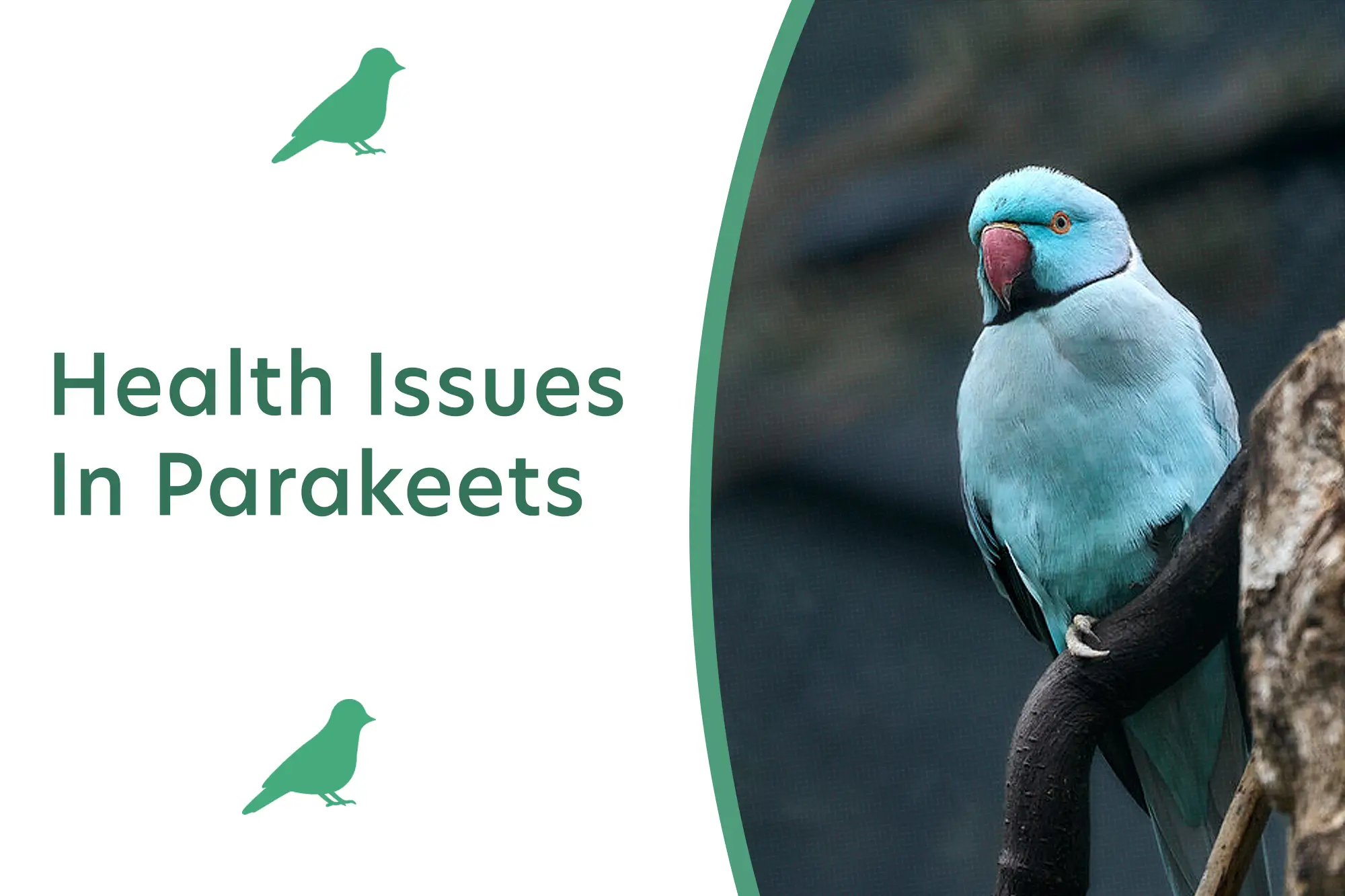Parakeets are lively, intelligent, and colorful pets that bring joy and companionship to their owners. However, like any pet, they can face some health issues. In this blog post, we’ll explore the most common health problems in parakeets and discuss preventative measures you can take to keep your feathered friend healthy and happy.
Common Health Challenges
Respiratory Issues
Parakeets, like other birds, are susceptible to respiratory issues. Signs of respiratory problems include sneezing, wheezing, coughing, and nasal discharge. Common causes of respiratory issues include environmental irritants, bacterial infections, and fungal infections.
Malnutrition and Obesity
An imbalanced diet can lead to malnutrition, which can cause feather loss, lethargy, and weak bones in parakeets. Obesity, on the other hand, can cause liver problems, heart issues, and difficulty breathing.
Feather Plucking and Skin Issues
Stress, boredom, or skin irritation can lead to feather plucking and other skin issues in parakeets. Excessive plucking can cause skin damage and make the bird vulnerable to infections.
Bacterial and Fungal Infections
Parakeets can suffer from various bacterial and fungal infections affecting various parts of their bodies, including their respiratory system, digestive system, or skin. Infections can arise from an unclean environment or a weakened immune system.
Parasites
Parasites such as mites, lice, and worms can infest parakeets and cause health issues like itching, feather loss, and anemia.
Reproductive Issues
Female parakeets can experience reproductive issues such as egg-binding, which occurs when an egg gets stuck inside the bird’s reproductive tract. This condition is life-threatening and requires immediate medical attention.
Tumors
Parakeets can develop benign or malignant tumors in various parts of their bodies. Some tumors can be surgically removed, while others may require additional treatment like chemotherapy.
Prevention Tips
- Routine Veterinary Care: Regular check-ups by an avian veterinarian can identify and address potential health issues before they become critical.
- Balanced Diet: Providing a balanced, nutritionally-rich diet ensures your parakeet receives the necessary vitamins and minerals for optimal health.
- Clean Living Environment: Maintaining a clean cage, free from droppings and soiled bedding, is essential for preventing bacterial and parasitic infections. Regularly disinfecting perches, feeders, and toys can further reduce disease-causing microbes.
- Mental Stimulation: Providing toys, social interaction, and an engaging environment helps alleviate stress, boredom, and associated health conditions such as feather plucking.
- Proper Ventilation: Avoid using aerosols, candles, or strong chemicals around your parakeet’s cage, as these can cause respiratory issues. Ensure their living space has good air circulation and is free from drafts or extreme temperatures.
- Quarantine New Birds: Separating new birds for a period of 4-6 weeks before introducing them to your existing flock can prevent the spread of illnesses.
- Observe Behavior: Regularly monitoring your parakeet’s behavior, eating habits, and droppings allows you to detect signs of illness early and seek treatment before a condition worsens.
- Stress Reduction: Try to minimize any stressful events or changes in your parakeet’s environment to help maintain their overall wellbeing.
By paying close attention to your parakeet’s health, providing a balanced diet, and maintaining a clean and stimulating environment, you can significantly reduce the risk of health issues and ensure a happy, healthy life for your feathered friend.
Signs of Illness and When to Seek Veterinary Care
Your parakeet may not show immediate signs of illness, but there are subtle cues to watch out for:
- Changes in Appetite: Sudden lack of appetite or increased thirst can indicate an underlying health issue.
- Weight Loss: Rapid or significant weight loss is often a sign of illness, even if your bird continues to eat normally.
- Changes in Droppings: Changes in color, consistency, or frequency of your parakeet’s droppings can be an early warning sign of sickness.
- Breathing Difficulties: Labored breathing, wheezing, or coughing can indicate respiratory issues that require immediate vet attention.
- Behavioral Changes: Decreased activity levels, lethargy, or unusual aggression are often signs of discomfort or illness.
- Physical Changes: Look out for changes such as ruffled feathers, changes in eye or beak appearance, or problems standing or moving.
- Feather Problems: Feather plucking, or abnormal moulting patterns can indicate stress or disease.
Immediately seek vet care if you observe any of these signs in your bird. Regular health check-ups are also essential to ensure your bird is in good shape.
